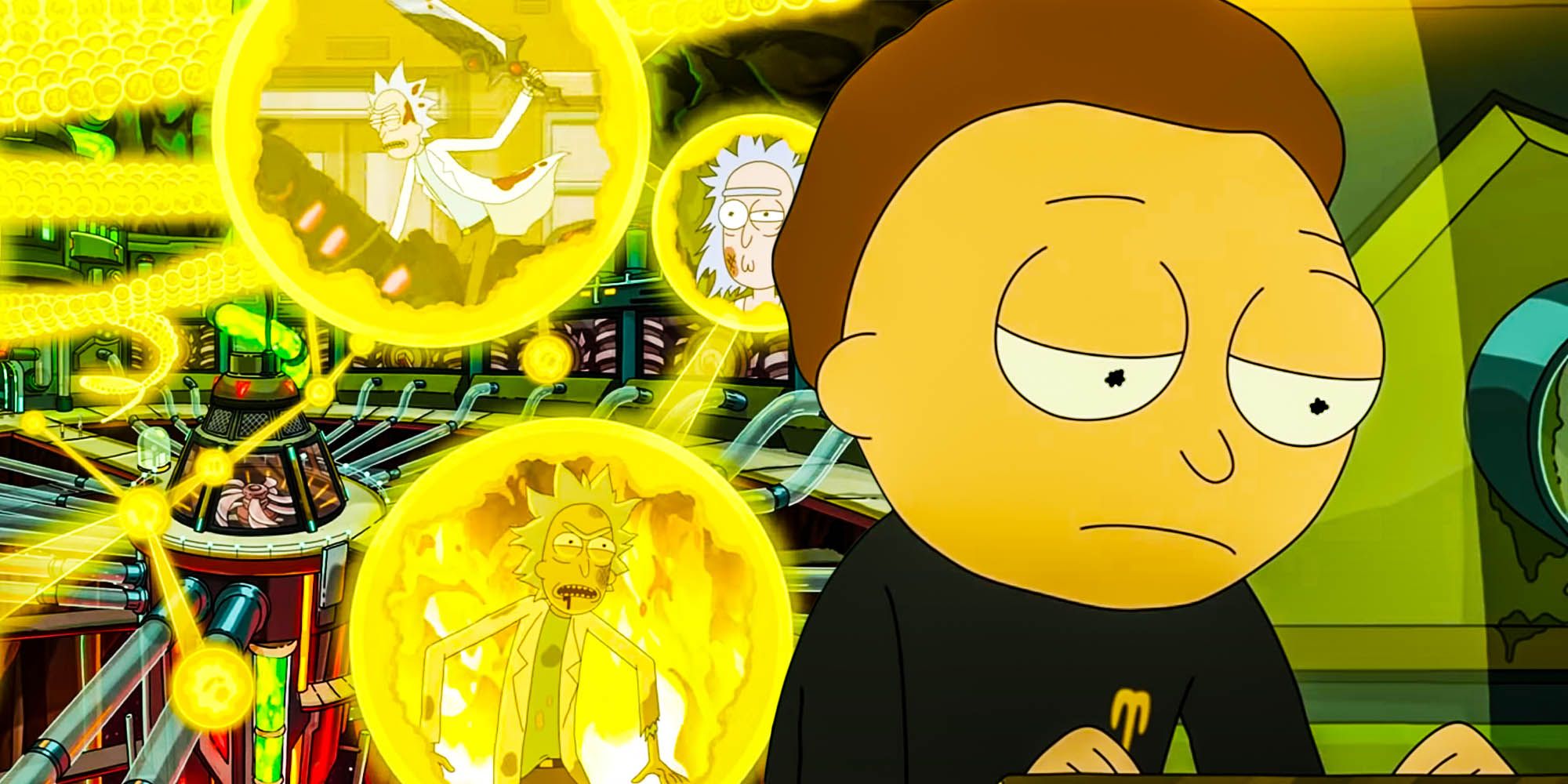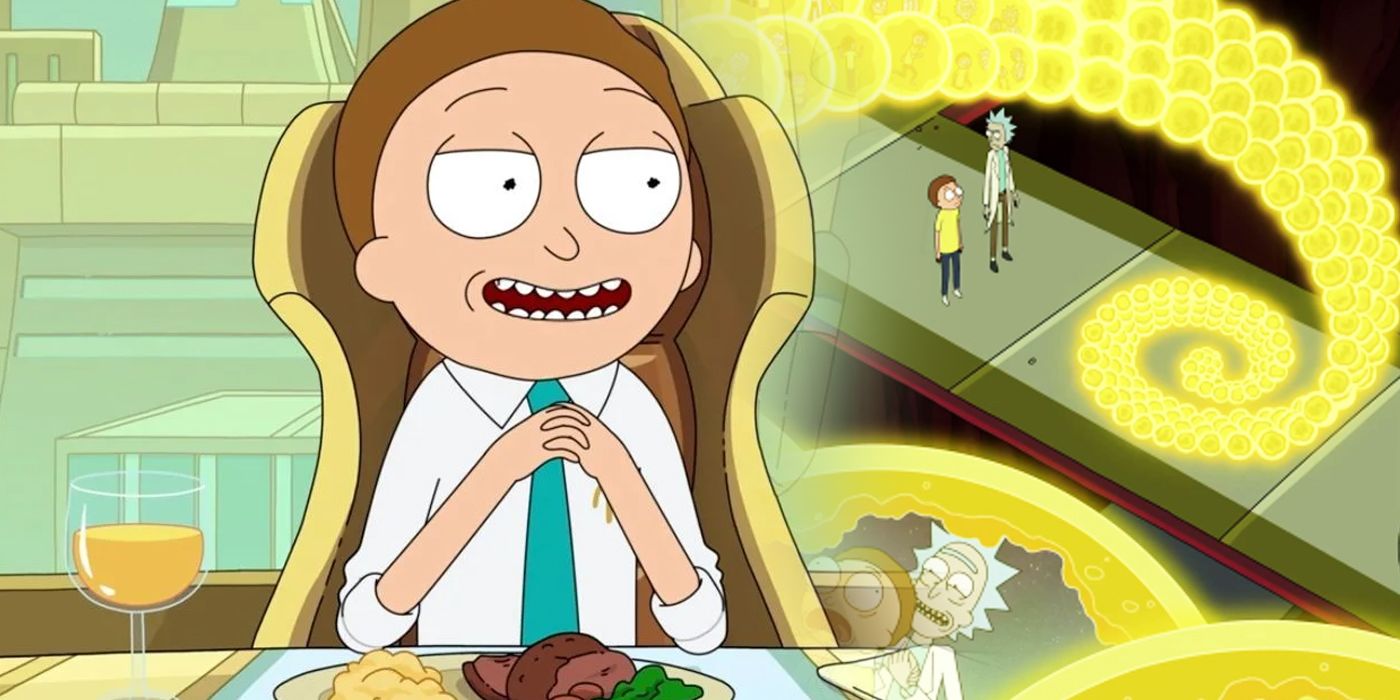When Rick and Morty ended its multiverse suddenly during the season 5 finale “Rickmurai Jack" it was a necessary decision. The shocking twist in the episode implied the end of the multiverse, which has been a major part of the show. While it may have felt jarring to some viewers who have been watching these threads come together over many seasons before so hastily concluding, from a wider perspective, this may not be so surprising.
The show has been nursing its multiverse storyline since season 1's penultimate "Close Rick-counters of the Rick Kind," which introduced Rick and Morty's Citadel of Ricks. The Citadel has since been destroyed, and rebuilt, but all the while the multiversal Rick storylines have remained some of the biggest ideas and overarching plots in the show. The season 5 finale "Rickmurai Jack,” brought an end to all of that, tying up nearly every loose end in one neat episode. The destruction of the Citadel of Ricks, the escape into the dimensions beyond of the nefarious Evil Morty, the total reveal of Rick’s backstory to line up with the first episode, and the supposed loss of Rick’s portal gun - a show staple to this point - hints at a major reboot for Rick and Morty.
It may be a wise decision, despite how startling it currently seems. Rick and Morty had to end their multiverse storyline now because by the time they finished it at their own pace it may have been too late. Rick and Morty has been celebrated over the past five seasons for upending countless genre tropes and continually reinventing what might be otherwise considered tired clichés. The show revolving around the concept of a multiverse may grow stale in the face of similar storylines given what every other major media franchise has planned, which would undermine the uniqueness that has made Rick and Morty so beloved.
Chief among these franchises focusing on the multiverse is what's on the horizon from entertainment giants Marvel and DC. Marvel is betting its future on a multiverse storyline. Establishing a multiverse was the central consideration of Disney+’s Loki, its exploration is the entire selling point of their What If...?, and belief in the salability of a multiverse is integral to the upcoming multi-dimensional Sinister Six villain team in Spider-Man: No Way Home and Doctor Strange in the Multiverse of Madness. Meanwhile, on the other side of pop-culture blockbusters and television, DC is following up 2019’s Arrowverse crossover event Crisis on Infinite Earths with multiverse storylines in their CW shows Superman & Lois and Stargirl. Multiverses also seem to be at the heart of Ezra Miller’s The Flash movie scheduled for release in 2022, notably featuring Michael Keaton playing Batman from an unrelated DC film continuity. Not one but two mega entertainment giants are putting all their eggs in the multiverse basket, which means it’s time for Rick & Morty to get out.
Rick & Morty is, as a conservative estimate, now halfway through its run. It has episode orders that will bring it to a 10th season if it maintains its pace, even assuming it doesn't continue. This provides unprecedented freedom for an animated show to tell long-reaching serialized storylines. The choice to abruptly end Rick & Morty's multiverse, while shocking, must have been intentional. The show has been much celebrated, but if it aims to maintain its relevance to get through its 10 seasons or beyond with the quality it is known for, then it can't be doing the same thing as billion-dollar tentpole superhero franchises. The showrunners may simply have been looking ahead to keep Rick & Morty on top.


